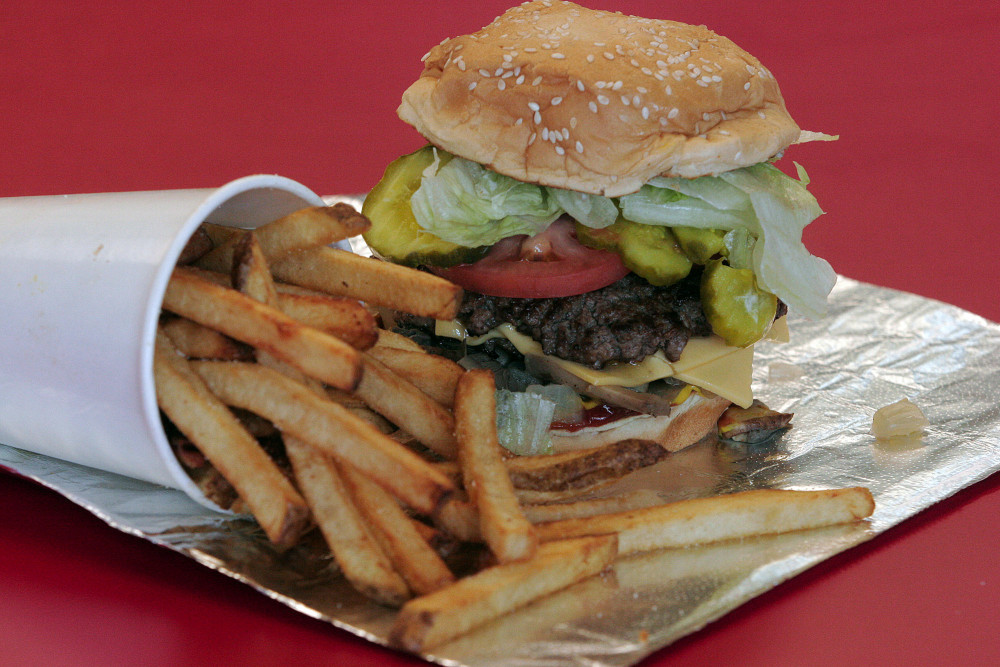By Mary MacVean
Los Angeles Times.
Our food is cheap, perhaps too cheap, if you look at the intersection of economics and obesity.
Researchers have found that obesity hits all groups of Americans, those with more money and education and those with less.
That, and some other findings, challenge the common views about what’s fueling obesity in the United States.
“(S)ome widely held beliefs about obesity and environments have little evidence in their favor, and some are contradicted by the data,” the researchers wrote this week in CA: A Cancer Journal for Clinicians.
The researchers acknowledge that there are disparities in weight and health among groups of Americans, but they said that trends toward obesity occur in all groups. And they found that some of the circumstances commonly considered to be the causes are not borne out by data.
Today, two in three Americans are overweight or obese.
Americans are spending a smaller share of their income on food than any other society in history, and since 1970 there has been an average per-person increase in calories of 20 percent, the researchers said. Prices for prepared foods have become particularly cheap, but produce also is more widely available than ever.
Consumption of produce has increased during the obesity epidemic, they said.
“Not only has food been getting cheaper, but it is easier to acquire and easier to prepare,” said Roland Sturm, lead author of Thursday’s report and a senior economist at RAND, a nonprofit research organization. “It’s not just that we may be eating more high-calorie food, but we are eating more of all types of food.”
“An emphasis on reducing discretionary calorie consumption, particularly SSBs (sugar-sweetened beverages) and salted snacks, may be a promising lever to reduce overweight and obesity,” the researchers wrote.
They called for policies that would address the need for people to replace calorie-dense foods with fruits and vegetables, not just add produce to what they already eat.
But such policies have been tough to find. Taxes or subsidies on particular items might be a nudge, they said. There have been efforts at such taxes in the United States, but none has succeeded.
In California on Friday, a bill was passed by a Senate committee placing a warning on containers of sugary drinks, saying drinking them “contributes to obesity, diabetes and tooth decay.” The bill now goes to the full Senate.
“Although increasing fruit and vegetable consumption may be a laudable goal for other health reasons, it is unlikely to be an effective tool for obesity prevention,” wrote Sturm and co-author Ruopeng An of the University of Illinois at Urbana-Champaign.
In the 1930s, American spent about 25 percent of their disposable income on food; today it’s about 10 percent.














































































































































































































































































































































































